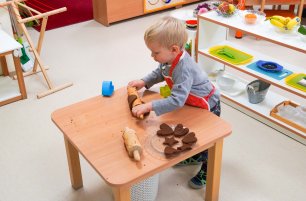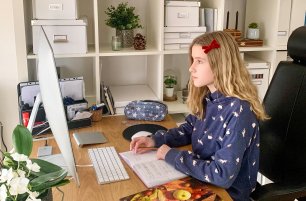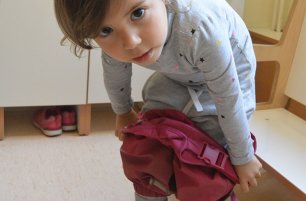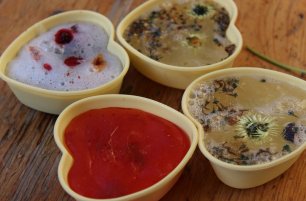Future of Education
Radka Dohnalova, a parent of three IMSP children, has been researching the future of education in this world. She has summarized her findings in the article below, which was also recently published. Radka wanted to share the results with the IMSP community when her research revealed how Montessori education aligns with where the future of education is heading.
Education, alongside health care and travel, is one of the areas anticipating a radical change in the near future. The basic tenets and principles of contemporary education were set more than two centuries ago with a focus on standardization and conformity. However, the context and demands of the world of today are far different, and our goal is to prepare children not only for their future employment, but for life itself. We need to change our outlook, our lifestyle and our education accordingly.
5 Greatest Problem of the Current Educational System
I have selected five problems that concern me the most in this context:
1. Children are not learning relevant skills to prepare them for real life
When I compare what I learned at school to what I actually use in my life, the overlap is minimal. Aside from traditional subjects such as mathematics, physics, languages and history, there‘s a real need for skills that are applicable for anyone, regardless of their future profession. These include team work, conflict resolution, critical thinking and applying one‘s own creativity or enterpreneurship.
2. Uniform approach to each child
One set of information is taught by one teacher, at one speed, in one age group. This approach leads to some children falling behind and others being bored, in result destroying the motivation of them both. We’re not talking about teaching mathematics to some children and not to others, but about individualizing its instruction – adjusting the tempo and content to the child‘s individual level and using practice exercises that interest the child. Each child has their own unique natural talents and passions, which may never be discovered and developed in a uniform environment.
3. Everything is set with minimal room for imagination and creativity
Forced busyness and memorization are two main influences that diminish and destroy our creativity in school. Every day is scheduled and portioned out into clearly differentiated lessons and activities. Because of the focus on learning „word by word“ and filling every available minute, we lose the ability to create and make connections between topics and areas. Creativity is critically important because it allows us to link ideas, make discoveries, approach problems from different perspectives and thus solve them.
4. There is too much emphasis on results, losing the love of learning for its own sake
The current system places the greatest emphasis on test results, fulfilling the requirements and getting our grades and degrees. We see results as the key to a better future, and allow them to overshadow the learning process itself. This destroys the whole purpose of education. Instead, it‘s crucial to stimulate children‘s curiosity, love of learning and inner motivation, which are key for lifelong learning.
5. Grades demotivate
The grading system is built on an „A“ as the highest prize, with each mistake diminishing and bringing down the perfect score. This can lead to demotivation or fear of bad grades. Instead, we could take inspiration from gaming scores, where each partial success increases the score, and therefore positively encourages effort.
8 Areas Which Will Transform Education in the 21st Century
1. Discovery and development of individual talents and passions
Each one of us has the potential to excel in something. We can identify this potential through our natural talents and passions, giving us the chance to truly excel and to continuously achieve, with ease and joy. One of the main tasks of education should be to help children find their potential and fulfill it.
2. Communication and cooperation
No matter what we do in life, it is important for us to be able to communicate and cooperate with others. To do so, we need to develop our emotional intelligence, empathy and storytelling skills. Thanks to the ability to understand others and communicate our ideas clearly, we can excite others, create teams and realize great visions.
3. Basic life skills
In essence, everyone wants to be happy and healthy. However, current education focuses chiefly on skills required for work, such as reading comprehension, language abilities, and foundations of logic, mathematics and geometry. Topics relating to health and happiness used to be an integral part of education in both classical antiquity and during the Renaissance, and we should once again pay them the attention they deserve.
4. Creativity and flexibility
The fast-paced present time requires an ever greater ability to think creatively and quickly react to change. We must help children to consciously develop their creativity, whether through mathematics, sciences, music or technology... We can also help children practice and develop the ability to improvise and be open to change through games or improvisational theatre, which is built on contextual changes.
5. Stimulation of curiosity, experimentation and decision making
Curiosity is the drive behind most scienti- fic and industrial discovery. It is the desire of an individual to find out how things work and how can they progress. It leads to the process of questioning, formulating hypotheses, designing, testing, and experimentation and decision making based on the acquired information.
6. Enterpreneurship and the ability to start new things
How to make a lot from a little? How to handle limited resources? How to solve a complex and confusing situation? To lead children to enterpreneurship means to stimulate their inventiveness. In practice, they will need the ability to search, connect and take advantage of limited resources, and also salesmanship and financial skills.
7. Technology and critical thinking
Virtual reality, 3D printing and other modern technologies are the tools of tomorrow, and therefore our children need to experience and experiment with them now. Coding is one of the new skills which will join mathematics and language in elementary curricula. And to orient ourselves in the amount of information, we will need critical skills more than ever before.
8. Sustainability and ethics in a global context
The world of today is faster, more connected and diverse than ever before. However, the passion for progress and technology should always go hand in hand with sustainability and ethical guidelines. It‘s important to discuss the questions and dilemmas of today‘s society in schools, allowing children to refine their moral compass and develop their own opinions
Want to learn more? Read our next article:




